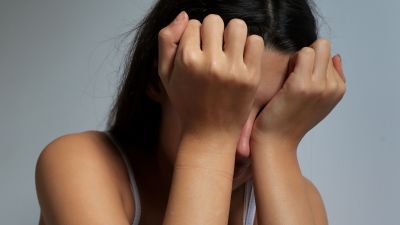Mental and physical health worsened for half of people in Wales due to rising living costs

More than half of people in Wales have said their mental and physical health has worsened since the cost of living crisis began.
The report, by the Welsh NHS Confederation and Royal College of Physicians, found 60% of people in Wales feel their health has been negatively affected by the rising cost of living.
The report also said "people in poverty die younger" and that an increase in poverty and inequality will lead to a greater strain on people's health and the NHS.
The alliance is calling on Welsh Government to provide more hands-on support in local communities and detailed guidance for smaller organisations on how to tackle these inequalities.
When asked the reasons for why their mental and physical health had worsened during the cost of living crisis, the report found:
Despite differences in health and access to healthcare being apparent before the pandemic and rising cost of living, the findings reveal that they have since been "exacerbated".
For example, respiratory conditions such as asthma and chronic obstructive pulmonary disease are often made worse by air pollution or exposure to mould in poor quality housing.
Whilst those in debt following continuous rises in bills are being pushed into a mental health crisis.
Nesta Lloyd-Jones, assistant director of the Welsh NHS Confederation and chair of the Health and Wellbeing Alliance, explained: “We know those living in more deprived areas have been disproportionately affected by the impacts of the pandemic.
“Tackling inequalities needs concerted and holistic action across Welsh Government departments and all sectors. There is clear evidence of the impact that poor quality housing, air pollution, food poverty and access to transport, sport and the arts has on people’s health. It is now vital that the government details how it will address the health divide and tackle the issue head on.”
Inequalities outlined in the report include:
Health inequalities cost the Welsh NHS £322 million every year (Public Health Wales).
Wales now has the worst child poverty rate of all the UK nations at 31% (End Child Poverty).
One in ten Welsh households live in insecure housing (Bevan Foundation).
People in Wales face a higher risk of dying in poverty than any other UK nation (Marie Curie)
Almost 60% of adults in Wales are living with overweight or obesity (Public Health Wales).
The full social cost of obesity to Wales is around £3 billion a year (Frontier Economics).
12% of Welsh households are at least one month behind on a bill (Bevan Foundation).
Child poverty has increased in 20 of 22 local authorities over the past 5 years (End Child Poverty).
Half of all children in lone-parent families in the UK are now living in relative poverty (IFS).
Dr Olwen Williams, vice president for Wales, Royal College of Physicians said: “People in poverty die younger. Inequalities in life expectancy in Wales are getting wider, partly due to the pandemic, which has highlighted how economic conditions can cut lives short. People should be able to afford healthy food and warm homes without worrying so much that it negatively impacts their mental and physical health.
“Concerted cross-government action to reduce health inequalities would help keep people contributing to the economy, their local communities, and wider society and reduce avoidable illness, and in the long-run, avoidable pressure on the NHS.”
Clarissa Corbisiero, deputy chief executive, Community Housing Cymru said the report highlighted that “not everyone in Wales has access to the things they need to stay healthy and well - such as adequate housing, fair employment, quality food, access to green space and more.“
In response to the report and its findings, a Welsh Government spokesperson said: “We want people in Wales to live long and healthy lives. That’s why tackling poverty and inequality is at the heart of everything we do, as we strive to build a healthier, more equal and more prosperous Wales.
“To achieve that, we’ve put in place a number of progressive policies. We’ve worked over many years to hard-wire action to tackle health inequalities in the way we plan and deliver public services in Wales. Unfortunately, the Covid pandemic and the cost of living crisis have deepened health inequalities. But Ministers are taking further action to tackle these inequalities; this is an integral part of our Covid recovery plans.
“Our policies and programmes have been designed to help people meet everyday costs and put money back in people’s pockets. But to support families right across Wales through the toughest cost of living crisis we’ve seen in a generation, we are now going further, by making an unprecedented £380million package of support available to help those who need it most.”